MSACL 2024Monterey, CA : March 17-22 |
Details
|
Trainee Poster Contest
View Poster Contest Participants
ELIGIBILITY: To be eligible you must be a current TRAINEE (e.g., students, post-docs, residents fellows and similar), or your training program must have ended after April 1, 2023. Reasonable exceptions may apply. Troubleshooting posters are not eligible.
AWARDS: There will be up to three financial awards*, depending on the number of participants and quality of the posters. These awards will be of 500 USD for the top three finishers.
LOGISTICS: Participants must indicate interest via Abstract Management through their Network Directory Profiles (if not already indicated during abstract submission) and upload a PDF of their poster by March 1.
POSTER UPLOAD : Participants will need to upload a PDF of their poster via their Network Directory Profile by March 1, so that it may be reviewed by the judges to select the Finalists who will be interviewed by the Poster judges during their poster presentation period.
ROUND ONE : Review of PDF Posters : The Judging Committee will review the Candidate Posters via the Uploaded PDFs between March 2-10. Each judge will select their 4 top posters, in order of preference. From these selections the Judging Committee will identify the finalists (~6-8). Finalists will be notified by email by March 11.
ROUND TWO : Oral Presentation & Defense: [during each finalist's poster attendance period]. Each judge will spend 3-5 minutes at each finalist's poster to collect information by which to determine the poster award winners . The judges may perform the finalist interviews as a group, in smaller groups, or individually, with each judge selecting their top 4 posters from which the winners will be determined. There will be up to 3 winners of up to $500 each, depending on number of participants and quality of the posters.
AWARDS ANNOUNCEMENT : Awardees will be announced on Thursday at the Pub-style Trivia Dinner.
MORE INFO on the contest logistics and the recommended judging rubric (PDF).
*Awards are only payable by PayPal. You must have a PayPal account to receive an award payment.
Poster Judges
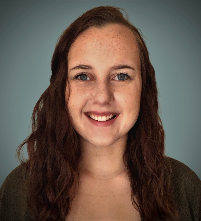
|
Lauren Bishop, |
||
| I am a fifth year PhD student working under the mentorship of Oliver Fiehn at UC Davis. My research interests primarily focus on improving the scope of absolute quantitation and quantitative accuracy within nontargeted lipidomic analyses. | |||
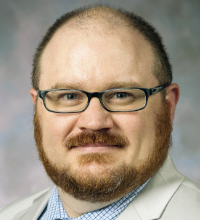
|
Dustin Bunch, PhD, DABCC |
||
| Dustin R. Bunch, is an Asst. Director of Clinical Chemistry & Co-Director Laboratory Informatics at Nationwide Children's Hospital. His research focuses small molecule analysis by mass spectrometry in a clinical setting and clinical informatics. | |||
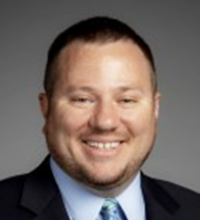
|
Christopher Chouinard, PhD |
||
| I received my PhD from University of Florida in 2016, where I developed ion mobility-mass spectrometry (IM-MS) methods for steroids and vitamin D metabolites. I then worked as a post-doctoral research at Pacific Northwest National Laboratory, building Structures for Loss Ion Manipulations (SLIM) ion mobility instrumentation for application in metabolomics and proteomics. In 2018, I began my independent career as an Assistant Professor at Florida Institute of Technology. I have since moved to Clemson University in August 2022. Work in my research group focuses on ion mobility-mass spectrometry (IM-MS)-based methods and technology, including structurally selective reactions for improved characterization of steroids and other controlled substances. | |||
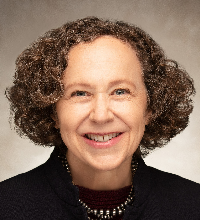
|
Elizabeth Frank, PhD |
||
| Elizabeth L. Frank, PhD, is a professor of pathology at the University of Utah School of Medicine and a medical director at ARUP Laboratories, a national reference laboratory operated by the University of Utah, in Salt Lake City. She is certified as a clinical chemist by the American Board of Clinical Chemistry and is a fellow of the AACC Academy. Dr. Frank's clinical and scientific interests are focused on measurement of biogenic amines, porphyrins, and vitamins using HPLC and LC-MS/MS; determination of calculi composition using FTIR; biochemical assessment of nephrolithiasis risk; and use of laboratory test results to evaluate health status. | |||

|
Tim Garrett, PhD |
||
| Dr. Garrett has over 20 years of experience in the field of mass spectrometry spanning both instrument and application development. He received his PhD from the University of Florida, under Dr. Richard A. Yost, working on the first imaging mass spectrometry-based ion trap instrument. He has also developed MALDI-based approaches to analyze proteins in bacteria and small molecules in tissue specimens. His current interests include the translation of LC-HRMS, MALDI, DESI and LMJSSP in metabolomics to clinical diagnostics. He is an Associate Professor in the Department of Pathology at the University of Florida, and an Associate Director for the Southeast Center for Integrated Metabolomics (SECIM). | |||
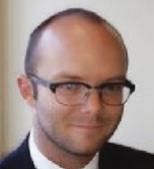
|
Joshua Hayden, PhD, DABCC, FACB |
||
| Joshua is currently the Chief of Chemistry at NortonHealthcare. He earned his PhD in chemistry from Carnegie Mellon University. He conducted postdoctoral research at Massachusetts Institute of Technology before completing a two-year clinical chemistry fellowship at University of Washington and 4 years as Assistant Professor at Weill Medical College. Joshua has special expertise developing and overseeing mass spectrometry assays in the clinical laboratory. | |||
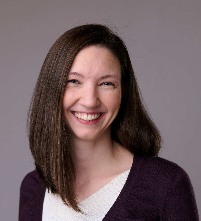
|
Claire Knezevic, PhD |
||
| Dr. Claire Knezevic is an Assistant Professor in the Division of Clinical Chemistry at the Johns Hopkins University. She serves as director of Critical Care laboratories and the Drug Assay Laboratory at Johns Hopkins Hospital. She also serves as Assistant Director in the Clinical Pharmacology Analytical Laboratory. Her interests include all things small molecule, from toxicology to therapeutic drug monitoring and their impacts on clinical care. | |||
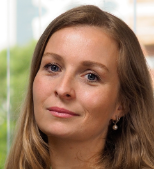
|
Guinevere Lageveen-Kammeijer, PhD |
||
| Guinevere received her PhD on exploring prostate-specific antigen (PSA), the well-known biomarker for prostate cancer, and its glycosylation by capillary electrophoresis and mass spectrometry. Since 2022, Guinevere is appointed as an Assistant Professor (tenure track) in the Analytical Biochemistry group at the Univeristy of Groningen She currently works on further expanding a mass spectrometry-based PSA glycosylation assay which she developed during her PhD. In addition, she explores the possibilities for the in-depth analysis of glycans and intact glycoproteins for biomarker discovery for other diseases as well as for the characterization of biopharmaceuticals. In 2017, Guinevere joined the organization committee of the Netherlands Area Biotech (NLab) Discussion group of CASSS. In 2019, she became a member of the scientific committee of the glycomics session, and a member of the early career committee, of MSACL EU. Her research interests are focused on bringing together researchers from the field of biomarker discovery with clinical laboratory professionals, ensuring a better translation of potential biomarkers to the clinic. Moreover, she is dedicated to convincing her fellow colleagues that glycosylation is an important subject and should not be neglected just because it is rather complicated. | |||
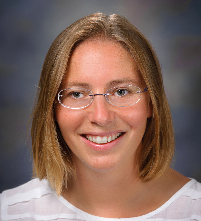
|
Renee Ruhaak, PhD |
||
| Renee Ruhaak holds a PhD from the Leiden University Medical Center (LUMC, supervisor Prof. M. Wuhrer) and did a post-doc at UC Davis in the lab of Prof. C.B. Lebrilla prior to joining the department of Clinical Chemistry and Laboratory Medicine at the LUMC. She is currently an associate professor with a research focus on the application of mass spectrometry within the clinical setting. This entails both development and implementation of quantitative protein mass spectrometry, as well as the role of mass spectrometry in metrology and test standardization. | |||
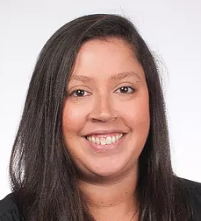
|
Laura Sanchez, PhD |
||
| Laura started her independent lab in the Fall of 2015 at the University of Illinois at Chicago in the Department of Pharmaceutical sciences. The lab relocated to the University of California, Santa Cruz Department of Chemistry and Biochemistry in January 2021. Her team specializes in using and adapting imaging mass spectrometry and tandem mass spectrometry for small molecule analyses in complex systems. Laura was a K12 BIRCWH Scholar (2016-2017) which supported the translation of the techniques to women's health. She was the Rising Star in the Life Sciences in 2019 at UIC. | |||
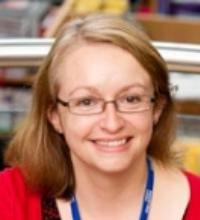
|
Elizabeth Want, PhD |
||
|
I am a Senior Lecturer in Molecular Spectroscopy in the Department of Metabolism, Digestion and Reproduction. I joined Imperial College in 2006 after working as a postdoctoral researcher at the Scripps Research Institute in La Jolla, CA. At Imperial College, I was initially a postdoctoral researcher for the Consortium for Metabonomic Toxicology (COMET) group. My research focuses primarily on the development and application of novel mass spectrometry (MS) based techniques for metabolic phenotyping and on the fusion of mass spectrometric methods with chemometric analysis, which is currently a significant bottleneck in the analysis pipeline. Broadly, my research at Imperial College has involved the development, optimisation and application of UPLC-MS methodologies for the analysis of biological samples, largely in the context of metabolic phenotyping: serum, urine, tissue, amniotic fluid, and microdialysates. These developmental advances have resulted in shorter analysis times – and therefore higher sample throughput – key for large scale metabolic phenotyping studies. Peak detection and analytical reproducibility have been enhanced, improving metabolome coverage and the potential for biomarker identification and quantification. I am applying these methods to biomedical research areas including toxicology, cardiovascular disease, neonatal disease and development, maternal exposures and effects on early childhood, and neurological diseases. |
|||




